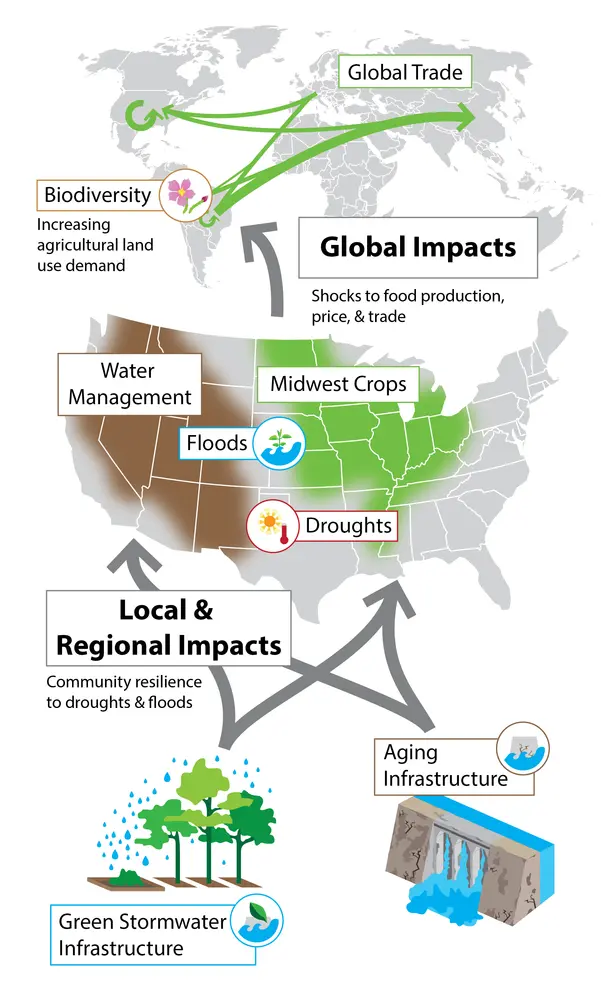
Dave Evensen and National Science Foundation
A new national initiative to enable geospatial data-driven scientific discovery will create a $15-million institute at the University of Illinois Urbana-Champaign to better understand the risks and impacts of climate change and disasters.
The Institute for Geospatial Understanding through an Integrative Discovery Environment (I-GUIDE) will receive the funding over five years as part of the National Science Foundation (NSF)’s Harnessing the Data Revolution, which establishes five institutes across the United States to explore questions at the frontiers of science and engineering.
“The goal of I-GUIDE is to revolutionize theories, concepts, methods, and tools focused on data-intensive geospatial understanding for driving innovative cyberGIS and cyberinfrastructure capabilities to address the most pressing resilience and sustainability challenges of our world such as biodiversity, food security, and water security,” said Shaowen Wang, head of the Department of Geography and Geographic Information Science and founding director of the CyberGIS Center for Advanced Digital and Spatial Studies (CyberGIS Center), who will lead the institute.
Collaborators and partner institutions from around the country that are part of I-GUIDE will work with the CyberGIS Center in partnership with U of I’s Institute for Sustainability, Energy, and Environment and U of I System’s Discovery Partners Institute.
“We’re thrilled that the National Science Foundation has established I-GUIDE in the CyberGIS Center,” said Venetria K. Patton, Harry E. Preble Dean of the College of Liberal Arts & Sciences. “This is a wonderful example of the many ways that LAS leads research and interdisciplinary collaboration that brings together talented colleagues from across campus.”